In today's digital world, everyone is captivated by artificial intelligence's (AI) growth. They are trying to leverage this technology to their advantage.
Primarily the popular conversational tool, ChatGPT. But with ChatGPT's popularity comes a deepening concern about data privacy.
So does ChatGPT save data? What are the ChatGPT privacy concerns for your kids?
We are going to explore everything about these concerns in this article.
But let’s start with the basics and have an overview of ChatGPT.
Table of Content
ChatGPT is a language model that uses deep learning and natural language processing techniques. By using these techniques, it can generate human-like responses to user inputs. And it can perform a wide range of language-related tasks with remarkable accuracy and fluency.
Moreover, ChatGPT can also perform tasks such as language translation and summarization. This makes it a versatile tool for various applications.
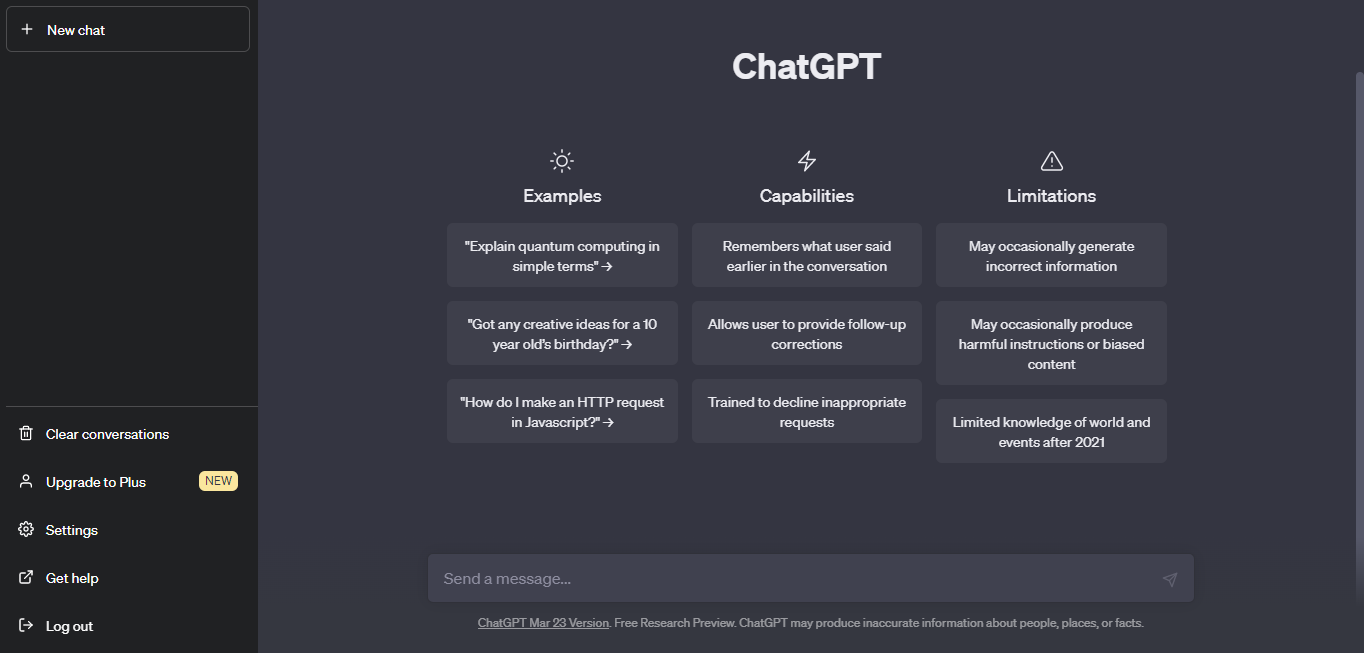
However, the increasing use of AI tools like ChatGPT has raised concerns about data privacy. There’s a widespread rumor that ChatGPT saves all our chats and conversations.
So is it true that ChatGPT saves data? Can we trust technology to handle our sensitive information?
Let’s see if the rumor is true or not.
The short answer is Yes, ChatGPT does save data. But it’s done to improve its language generation capabilities and overall performance.
When a user interacts with ChatGPT, the tool collects both the input text and generated output. Even the user's IP address, browser type, and device information are being stored. However, it's important to note that ChatGPT does not save any personally identifiable information (PII). These include your names, addresses, or social security numbers. As long as you don’t mention them in your chats.
However, concerns about data privacy in the age of AI remain an important issue.
Let’s examine how this saved data can be a risk for people.
As our personal lives move online, concerns about data security are on the rise. From e-commerce platforms to AI tools like ChatGPT, we share personal information with more companies than ever. While this can make our lives more convenient, it also creates new challenges for protecting sensitive data.
Here are some of the ways by which our data can be used against us.
1. Misuse of Personal Data
- Misuse of personal data can have grave consequences for individuals. There are concerns about identity theft, targeted scams, and cyberbullying. Discrimination based on personal data can also occur. It can lead to reputation damage by sharing sensitive information online.
2. Data Being Shared with Other Companies
- One primary concern is that third-party companies can share user data without explicit consent. This can lead to unwanted targeted advertising. It's essential for users to carefully review the privacy policy to understand what data is being collected and how it is shared.
3. Data-Driven Marketing
- Data-driven marketing is a powerful tool for businesses to reach their target audience. However, many worry that their data is being used without consent. The complaint is that they are being targeted with ads based on sensitive information. So, individuals must be aware of their rights and data control options.
4. Data Breaches and Hacking Risks
- Data breaches and hacking risks are also significant concerns in the digital age. Especially for AI-based tools like ChatGPT, which store and process large amounts of data.
- A data breach can occur when a system is infiltrated by unauthorized access. Hackers can use stolen data for malicious purposes, such as identity theft, financial fraud, and other cyber crimes. This can lead to severe consequences for both individuals and organizations.
5. Third-Party Access to Personal Data
- The personal information of users may be shared with third-party companies. This can include anything from analytics companies to marketing firms. The risk here is that these third-party companies may not have the same level of security in place as ChatGPT. In the future, this loophole could lead to data breaches.
But keep in mind that ChatGPT is not a newbie in technology. They have a highly advanced system to handle everything. And there are multiple measures to protect the user data in ChatGPT.
Let’s see what happens to user information once ChatGPT has saved it.
OpenAI, the organization behind ChatGPT, is committed to protecting user privacy. The company has implemented a range of measures to ensure user data is stored and processed safely.
ChatGPT collects the information and stores it securely in encrypted databases. This information is only used to improve the performance of the AI model. And this information is not shared with third-party companies or individuals.
ChatGPT also employs some other advanced security measures. They include firewalls, access controls, and encryption protocols. The story doesn’t end here! ChatGPT is transparent about its data handling practices. It allows users to delete their personal information quickly.
In short, privacy concerns shouldn't hold you back from enjoying the powerful capabilities of ChatGPT. Simply be mindful of what information you share during conversations. However, it's worth noting that this is particularly important regarding children's online interactions.
Let’s see how children are more susceptible to data privacy concerns with ChatGPT.
Let's be real, kids just think ChatGPT is a cool way to learn new things. They might not realize the information they're sharing could be used against them. Secondly, ChatGPT is like the chameleon of AI, designed to simulate a real conversation and trick kids into trusting it.
As a result, they may unwittingly disclose sensitive information to the AI model. Therefore, parents and guardians must monitor their children's use of ChatGPT closely.
But is it even possible to monitor our kids' activities on the phones? Of course, there is!
Let’s see how we can use the renowned parental control app Wondershare FamiSafe to block ChatGPT.

Wondershare FamiSafe is a powerful parental control app. Parents can easily monitor their children's digital activities with this secret camera. Using FamiSafe, parents can also block ChatGPT. Now you can ensure your children are not using the AI language model in potentially unsafe ways.
To block ChatGPT, parents can use FamiSafe's App Blocker feature. This feature allows parents to block access to specific apps, including ChatGPT. They can block it during certain times of the day or all together.
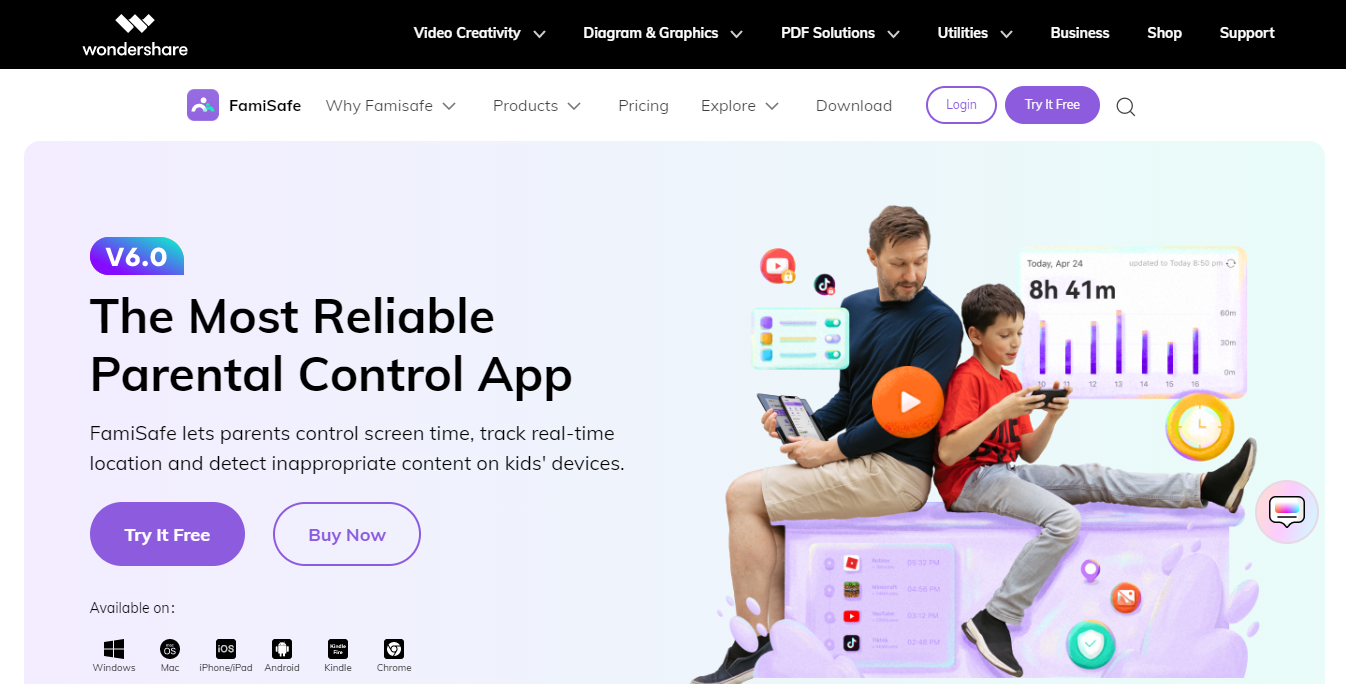
Key Features
Here are the key features of Wondershare FamiSafe.
- The app monitors kids' phone activity, including screen time, app limits, and a timeline of phone usage.
- YouTube app control and TikTok history feature help manage the usage of these platforms.
- The app detects inappropriate pictures and toxic messages on social media apps.
- The web safety features include a web filter, browser history, and safe search.
- The app allows parents to track their kids' location in real-time and view location history.
- Geofencing and driving report features provide additional safety measures for kids.
- The app also allows parents to call their kids from within the app.
Getting interested in using FamiSafe for your kids? Here’s how to use it.
Steps to Set Up FamiSafe
Here are the steps to set up FamiSafe for parental control.
Step 1
Download Wondershare FamiSafe on your device. It’s available on Google PlayStore, Apple Store, Amazon AppStore, and Chrome Store. You can also download it for MacOS or Windows PC.

Step 2
When you launch the app, check the features of FamiSafe. Then register your Wondershare FamiSafe ID or log in with Apple, Google, or Facebook ID.
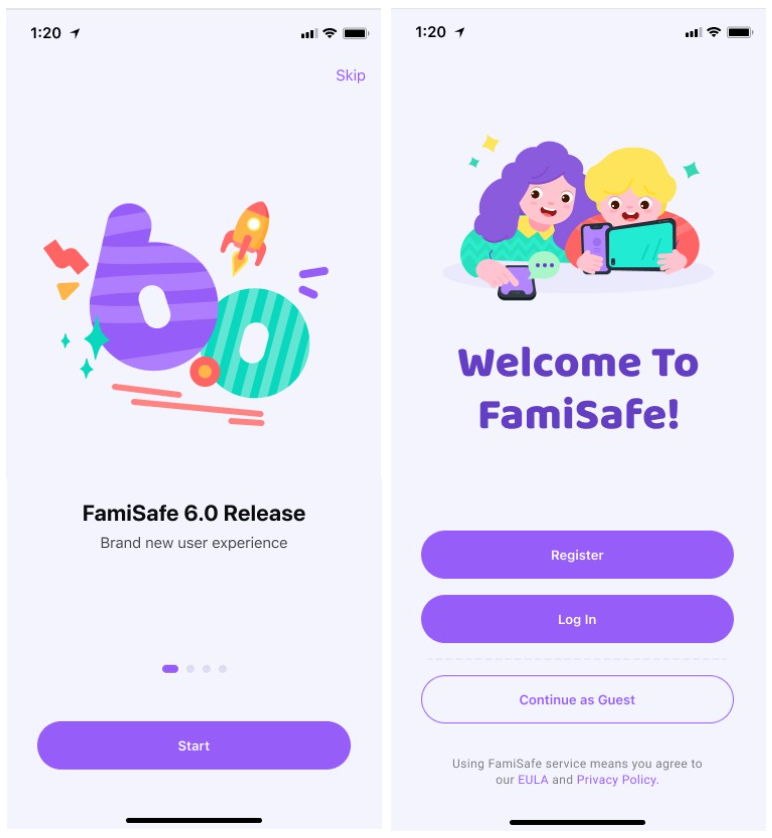
Step 3
Install the app on both the parent's and kids’ devices. Connect them using a QR code or the pairing code.
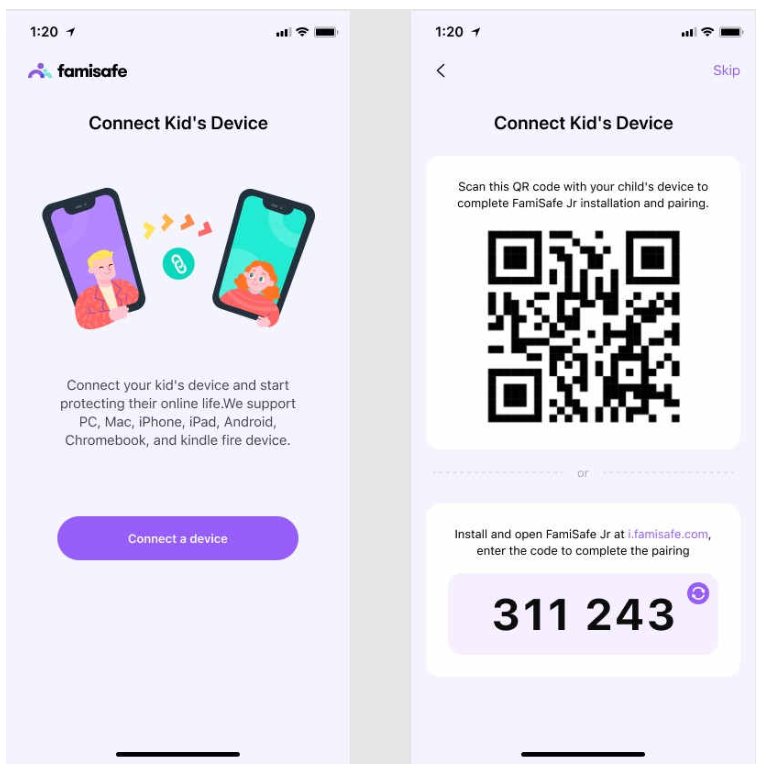
Step 4
Once the kids' device is paired and authorized, use the starter wizard to set up essential parental controls. And you're ready to roll.
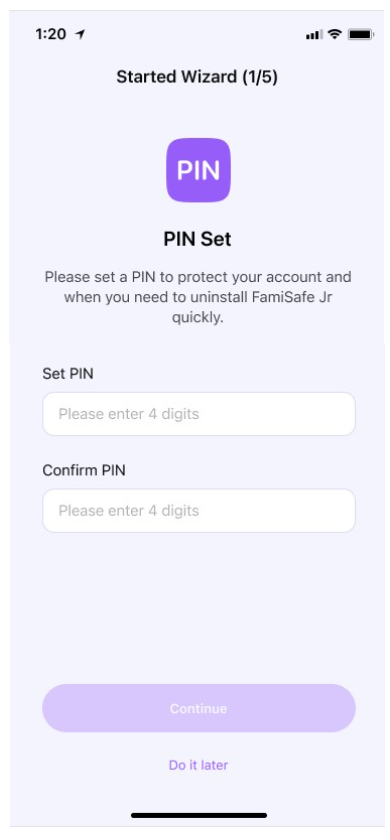
The trend of ChatGPT has raised concerns about data privacy. So does ChatGPT save data? Yes, it does. And it’s necessary to improve this AI tool.
But you don’t need to worry much about it, as ChatGPT applies many protective measures. The only concern here is about the kids! Because their innocent curiosity may lead them to reveal sensitive information unknowingly.
So monitor your kids' activities using the powerful parental control app Wondershare FamiSafe.
